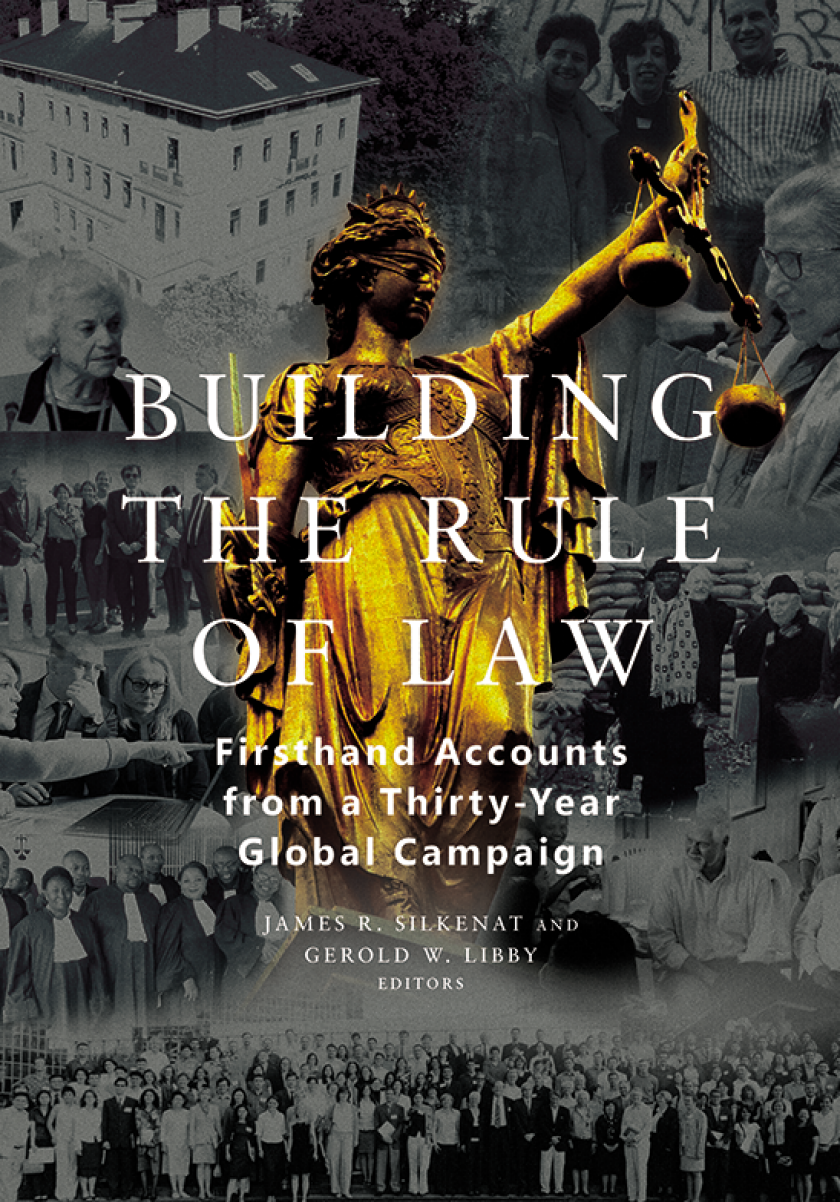End of the Cold War launched new efforts to build the rule of law

As chunks of the Berlin Wall were being torn down by jubilant crowds Nov. 9, 1989, James Silkenat was serving his term as chair of the ABA International Law Section. But he is the first to admit that he did not immediately anticipate what that event would mean for the Cold War, or that monumental changes would soon be taking place across Europe and Central Asia.
It was that event, however, that spurred discussions within the section about the need to help support countries working to establish a new rule of law. And those discussions would lead to a global volunteer effort spanning more than 100 countries over the next three decades.
In Building the Rule of Law: Firsthand Accounts From a Thirty-Year Global Campaign, dozens of those volunteers share their experiences from what began as the ABA Central European and Eurasian Law Initiative (known as CEELI) in the 1990s to the expansion into the ABA Rule of Law Initiative (known as ROLI), which now operates with five divisions covering Africa, Asia and the Pacific, Europe and Eurasia, the Middle East and North Africa, and Latin America and the Caribbean.
From fighting gender-based violence in Jordan to advising on judicial ethics in Kazakhstan to advocating for the rights of journalists in Indonesia, ROLI is involved in myriad efforts that have been supported by hundreds of volunteers, as well as staff.
The first-person narratives in Building the Rule of Law range from heart-rending accounts of helping to catalog war crimes to slapstick misunderstandings in foreign taxi cabs and were compiled by editors Silkenat and Gerald W. Libby, who is also a past chair of the International Law Section.
In this episode of The Modern Law Library podcast, Silkenat speaks about the project of compiling these histories and personal photographs and about how he has been changed by his work with ROLI. Silkenat, who was the ABA president from 2013 to 2014, is still heavily involved in ROLI, and he returned from a volunteer trip to Zambia the day before the recording.
As for why so many lawyers, judges and even U.S. Supreme Court justices wanted to volunteer their time for ROLI initiatives, Silkenat says there were a number of motivations.
“Many saw a chance to help shape legal systems of countries that would later become leading players on the global stage,” he told the ABA Journal’s Lee Rawles. “Many were motivated, in part, by the interest in public service that originally caused them to go to law school. Other volunteers wanted the chance to experience life abroad with a specific professional goal to accomplish, and, finally, many were encouraged to participate by the very persuasive views of CEELI/ROLI’s early leaders. If Justice [Sandra Day] O’Connor and Secretary of State [Madeleine] Albright thought this was a good activity, then maybe it was something to be pursued seriously.”
In this episode, Silkenat and Rawles also discuss concerns about the strength of the rule of law in the United States, the World Justice Project’s tracking of the rule of law around the world (the United States was ranked 26th out of 140 in the group’s latest report), and opportunities for other legal professionals to become involved in ROLI or other rule of law projects.
On May 16, from 9 a.m. to 4:30 p.m., ROLI will present the program “Putting People First: People Centered Justice” at the George Washington University Law School in Washington, D.C. Retired Supreme Court Justice Stephen Breyer will make remarks, as well as other legal luminaries. It is free, and the public is invited to register to attend virtually or in person.
In This Podcast:

James R. Silkenat. ABA file photo by Kathy Anderson.
James R. Silkenat is treasurer and a member of the board of directors of the World Justice Project. He also was the president of the ABA from 2013 to 2014. Silkenat was previously a partner in the New York office of Sullivan & Worcester, where he was a member of the corporate department. He is a former legal counsel at the World Bank’s International Finance Corp. Silkenat has served as chair of the ABA Section of International Law and the ABA Section Officers Conference. He served on the ABA Board of Governors from 1994 to 1997 and 2012 to 2015. He served as chair of the New York delegation in the House of Delegates from 2000 to 2009. He is also a former chair of the ABA’s Museum of Law. He is the co-editor of Building the Rule of Law: Firsthand Accounts From a Thirty-Year Global Campaign.



